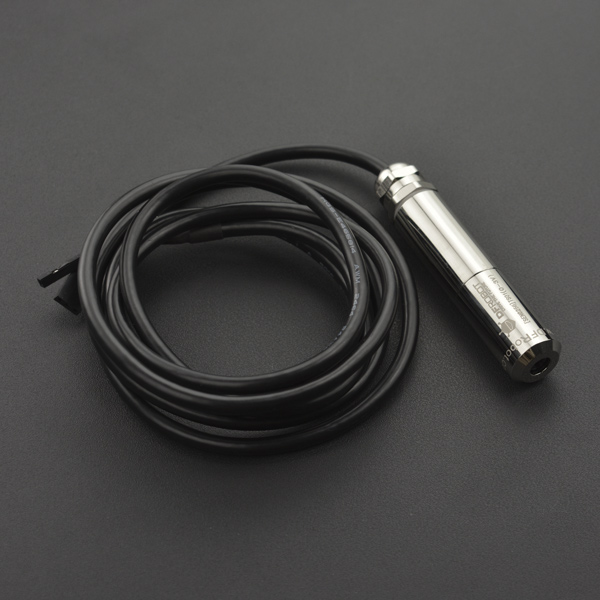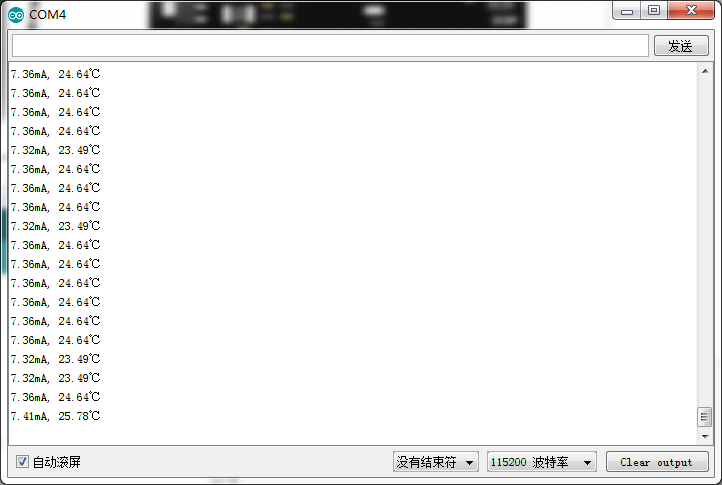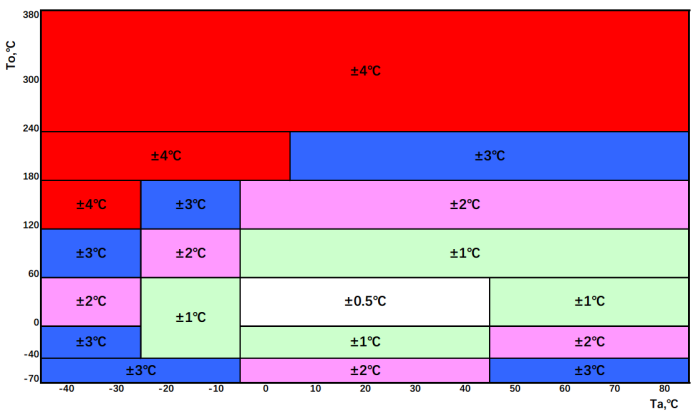
Introduction
DFRobot TS01 IR Thermal Sensor is a remote non-contact sensor, which can be used to measure the infrared intensity of an object so as to calculate its surface temperature without touching. The built-in temperature compensation for the sensor greatly ensures the accuracy of the temperature measurement. All kinds of internal parts of the sensor are sealed in a metal shell, which makes it able to protect against impact, water, dust and so on. Given stable output data, this temperature sensor can exhibit a much better measurement performance than most other similar products on the market. The product has been calibrated in wide temperature range before leaving the factory. With an operating temperature of -40℃-85℃, the sensor can be used to measure the temperature of -70℃~270℃ while providing a maximum accuracy of 0.5°C.
An optical filter (long-wave pass ) that cuts off the visible and near infra-red radiant flux is integrated in the package to provide ambient and sunlight immunity. Its FOV is small as 5°, which means for a heat source with an outer diameter of 10cm, the maximum detection distance of the sensor can reach up to 116cm.
In addition, we use shielding wires to reduce external radiation interference to the sensor as well to decrease its own radiation interference to the outside environment, which makes the sensor able to apply to all kinds of complicated industrial situations. At the same time, the accuracy of the product has been increased a lot.
The relation between the output temperature T(℃) and the current I(mA) the probe output: T=(I-4)/16*340-70
Specification
- Operating Voltage: 7.5~36V DC
- Nominal Current: 20mA
- Operating temperature: -40℃~85℃
- Measuring Temperature: -70℃~270℃
- Measuring Accuracy: ±0.5℃~±4℃
- FOV: 5°
- Defense Grade: IP65
- Probe Diameter: 15.4 mm
- Probe Length: 78 mm
- Cable Length: 1.5m
- Interface Type: stripped tin-plating wire

Tutorial
Preparation
- Hardware
- Arduino UNO Main Board(or analogous main board) ×1
- TS01 Infrared Temperature Sensor 4-20mA ×1
- Current-to-Voltage Module ×1
- Object Detected ×1
- Software
- Arduino IDE(1.0× or 1.8×), click to download Arduino IDE.
Connection Diagram
- TS01 outputs 4~20mA standard industrial current signal, a current to voltage converter is highly recommended when you want to use MCU to read the value.
- The power supply of TS01 is 7.5-36V.

Sample Code
void setup() {
Serial.begin(115200);
}
void loop() {
unsigned int ADC_Value = analogRead(A3);
float i=(double)ADC_Value/(204.8*0.12);
float j=(i-4)/16*340-70;
Serial.print(i);
Serial.print("mA, ");//printed current value
Serial.print(j);
Serial.println("\u2103");//printed temperature value
delay(100);
}
Result

Gradient Diagram of Measuring Accuracy
- The field of view(FOV) of the sensor is 5°. The target dimension and the optical properties of the IR temperature sensor decided the maximum distance between the target and the probe. The field of view of the sensor is shown below.

- The gradient diagram of measuring accuracy of the sensor is shown below (To is the measured temperature; Ta is the temperature of the environment the sensor locates in). Please note that the temperature error only applies to a certain isothermal condition, and it’s only valid when the detected object is fully filling in the FOV of the sensor.

FAQ
| Q&A | Some general Arduino Problems/FAQ/Tips |
|---|---|
| A | For any questions, advice or cool ideas to share, please visit the DFRobot Forum. |